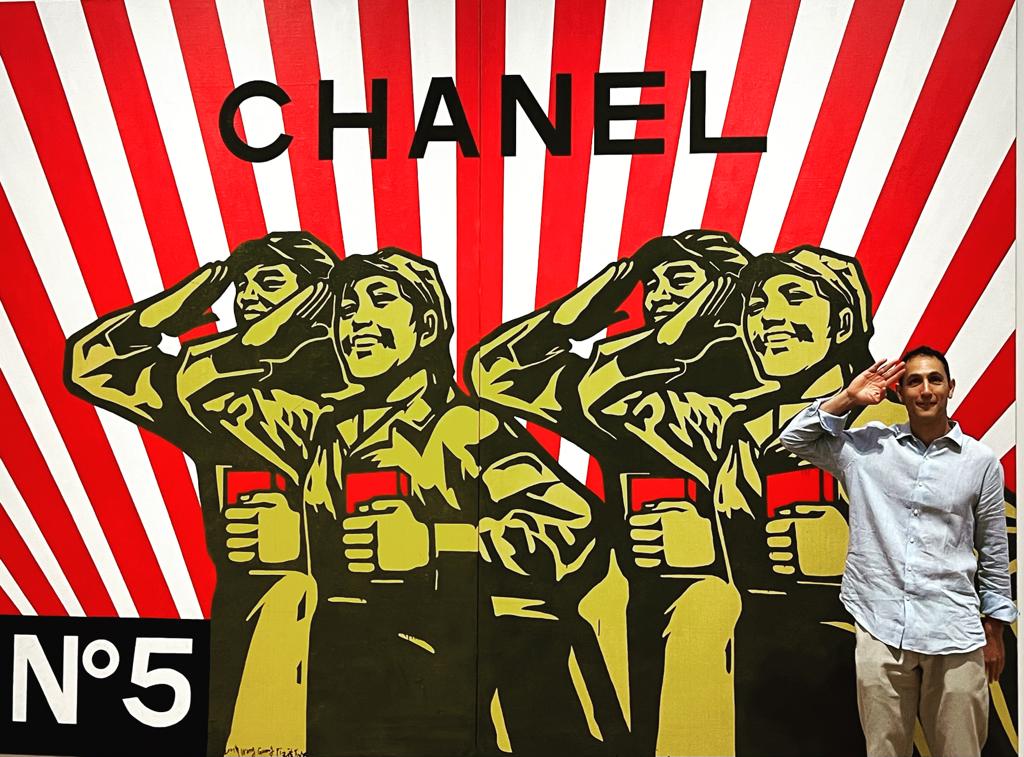
24 years ago I co-founded Imperial Tours, an inbound luxury tour operator in Beijing where I lived for 20 years. As a result of Covid, I was trapped outside China from November 2019 until three weeks ago when I returned for the first time. This article describes my experience of how China has changed during Covid.
The Status Of Westerners In China
I first moved to Beijing in 1997 to study Chinese at Beijing Language and Culture University. It was such a fun place to be. As a Caucasian it seemed as though I had a free pass to go anywhere and do everything. A Western junior diplomat of the time, now senior, used to joyfully drive us the wrong way down one-way streets for the sheer fun of it protected by diplomatic immunity. That was the atmosphere.
Unknowingly, I was benefiting from a century-old, unspoken social hierarchy topped by Westerners. But this unearned assumption of superiority took a grievous blow after the great recession of 2008 – 09 when the greed of western bankers wrecked the global economy. This not only exposed endemic institutional corruption but also shredded the reputation of the western capitalist model for probity and global governance.
And together with the successful rise of affluent Chinese – people who’d been born to nothing and had worked hard to afford their luxury lifestyles – the social pecking order within China began to change. One day soon after, I recall walking into the Bentley showroom with my American wife to find the sales person hop, skip and jump straight past me to a shabbily-dressed young Chinese man walking in behind – and sadly, this was entirely astute.
Three weeks ago, standing in the lobby of the Four Seasons Hotel, a place that would have intimidated many two decades previously, I could not help but be impressed by the swaggering self-confidence of the fashionably dressed, coiffed and shoed, local clientele. I realized with sudden clarity that I was the only hotel resident in the room not wearing a designer label, and also that in a room full of Chinese strangers, people who’d built their status-driven identity on such values, this did in a way matter.
While the Four Seasons hotel lobby represents only the commercial elite of Chinese society, I can draw a direct comparison for this group over the years. On that basis Chinese people in urban centers have progressed immeasurably and significantly matured such that the relative status of Westerners has dropped relative to them.
A Countryside Transformed
Whilst there’s a measure of disaffection in the cities, in the countryside I found a diametrically different story. Country folk have benefited mightily from the government’s decade-long “Poverty Alleviation Campaign”, the biggest and most unreported development in China over the last 10 years.
If the former leader Deng Xiao Ping set off the economic reform process in China with the aphorism “To get rich is glorious”, then Xi Jinping’s mantra of “the harmonious society” has been all about pulling up the countryside by its water-buffalo straps and reducing the wealth gap with the cities. This transformation has been staggering.
As a longtime China resident, I had been expecting to see litter, polluted water, wasteland, poorly built dwellings and a weird social mix in the villages of elderly grandparents with their grandchildren, the middle-aged parents having all left for manufacturing centers in search of work – those were my expectations of China’s countryside.
On returning to China after Covid, I could not have been more surprised. Traveling by high-speed train from Beijing to Xi’an, I saw a country networked with raised rail-tracks and highways traversing well-tended fields before a backdrop of townships with the odd kempt village. Traditionally, the poorest villagers in Shaanxi lived in cave dwellings – couldn’t find any of those anywhere near Xi’an now.
When I traveled to villages in southern Guaanxi province, an area admittedly in the top tier of China’s rural areas, I was flabbergasted by the changes. Ian Hamlinton, a South African architect, cum country hotel entrepreneur, cum Chinese TV personality, told me how Chinese villages have been revolutionized over the past decade.
“The government has invested in public services like sewage systems, piped water, a secure electricity supply, rubbish collection systems and you’ll even see publicly funded irrigation. Farm machinery has replaced the water buffalo, freeing up the afternoons as they don’t need to graze the buffalo anymore,” he related.

Reed mat weavers appreciate new health insurance coverage.
With their accommodation paid for and government support for health and education, they just need to make a little cash to get by. As a result, the villages are bustling again. The countryside has been so transformed to my eyes that I wonder how the traditionally parsimonious Chinese government is planning to fund these major reforms given the financial challenge set by the poorly performing economy.
Xi’an, The Shanghai of The West
As a result of the louche and excessive debauch in its French concession, Shanghai became known as the “Paris of the Orient”. It was an anything goes kind of place as the Chinese city of jazz partied into the early dawn of the twentieth century. This tag-line was used to market it in the 1980’s, but whilst Shanghai preserves and enjoys its Art Deco period, many voices in China’s elite have urged Shanghai to move on as a symbol of Chinese modernity. The incredible Lujiazui cityscape is an apt metaphor for what China and Shanghai have achieved over the last 40 years.
So when a couple of weeks ago I was driven from Xi’an North railway station across town to the Ritz Carlton Hotel to its south, I very much wondered how I’d somehow ended up in Shanghai. Had I taken the wrong train and arrived in Shanghai instead of Xi’an by accident? Where was the dirty, destitute city of Xi’an with its narrow roads and air pollution – the place that tourists in the early 2010’s would jet into in the early morning to see the Terracotta Warriors first thing so that they could fly out again immediately after and therefore largely avoid. I couldn’t find it anywhere.
Instead, I was in this sparkling new place speeding along a fabulous raised highway overlooking beautiful trees and passing modern apartment blocks that went on for miles and miles. It was the most befuddling sensation. What had happened? But that is China.
And for a provincial Limey like me, it feels like China’s the only place it could possibly happen like this. I must admit I’ve seen Austin, Texas blossom over the last 15 years, so I am aware of how growth happens in the west, but this is on a completely different level. It’s like another universe.
By way of rational explanation, I should explain that Xi’an is close to President Xi Jinping’s hometown and so just as Shanghai benefitted massively under the leadership of Jiang Zemin, who was from there, so has Xi’an these days benefitted from huge recent investment under its current leader.
Those of you who think you’ve been to and know Xi’an, think again – it’s bigger, newer and altogether more marvelous than you can possibly imagine, and as it’s got more archaeological treasures buried in its ground than any other place bar Luxor, there’s plenty for travelers to do here. I visited the new archaeological museum, and there’s plenty of other cultural sites like Famen Temple or the Tang dynasty frescoes for people to enjoy over and above the Terracotta Warriors, city wall and Muslim quarter.
What’s Not Changed In Hong Kong
This leads us finally to what’s happened in Hong Kong. Following the tough response to the umbrella movement and resulting sanctions, there is no question that a lot of western multinationals and expats have moved their businesses out of Hong Kong, often to Singapore, which has profited mightily as a result. I also caught the tensions that persist between mainlanders and local Hong Kongers, which most recently flared in the controversy over the behavior of Hong Kong Cathay Pacific flight attendants towards their mainland Chinese customers.
Nonetheless in my stays at the stalwart Mandarin Oriental and Peninsula Hotels I found the age-old and enduring values of world-leading hospitality predominant and well-sustained. Indeed, I was tickled pink to see longtime Peninsula servant Rieko Kibo in the lobby greeting guests. There is a savoir faire and sophistication embedded within the fabric of Hong Kong that helps it transition effortlessly between cultures.
Although there is a feeling that Hong Kong needs to confront the concentration of power in its property owners, friends inform me that the gap left by multinational company departures is being filled at least partly by a vibrant new class of entrepreneur from a more cosmopolitan background, particularly from the Middle East and Latin America. Development plans for the Greater Bay Area, also spur optimism.
Just as when I first visited China in 1993, there remains the feeling that China is a place on the move. The raw power of the place is still inspiring when you go to cities like Xi’an and see it entirely transformed, or find that over a three-year period, the countryside is so improved. I was proud, happy and fascinated to see those changes, though of course disheartened by areas where China seems to have moved in an unattractive direction.
People talk about the increased surveillance and the regular flashes of traffic cameras on the roads did disturb me. On the other hand, the first use of facial recognition software on this trip was introduced by Lufthansa and the British border force for flight check-in and immigration in London before I got anywhere near China. What was best about this trip though was the opportunity to meet up with so many old friends and be back doing something I love.
First published in Insider China Report on June 14, 2023.